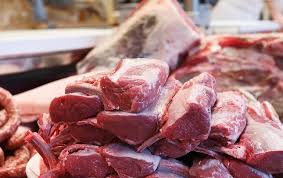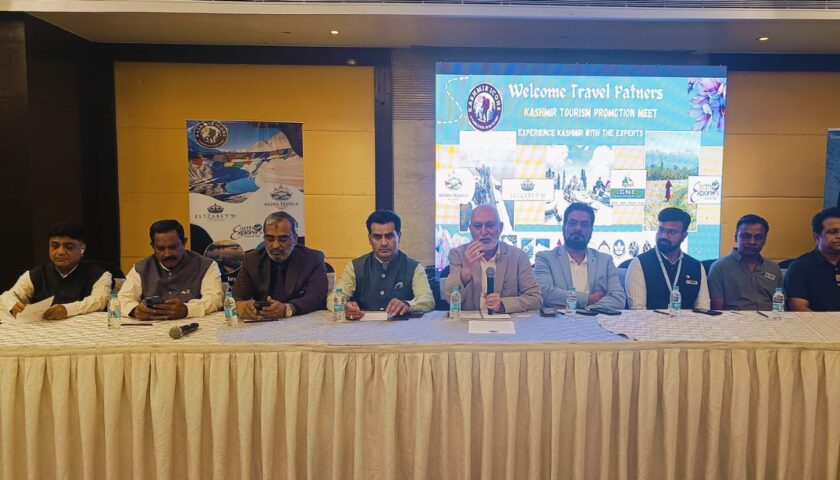Strict Food Safety Act Compliance in Kashmir After 13,000 Kg Rotten Meat Seizure: Business, Religious & Public Health Fallout
By: Javid Amin | 21 Aug 2025
A Wake-Up Call for Kashmir’s Food Industry
Food is more than sustenance—it is culture, faith, business, and survival. In Kashmir, where traditional cuisine and hospitality are integral to social life, the recent seizure of over 13,000 kilograms of rotten and unlabelled meat has not only shocked consumers but also shaken the very foundations of trust in the food supply chain.
The Jammu & Kashmir Food and Drug Administration (FDA) has sounded an urgent alarm, warning all traders and food businesses to strictly comply with the Food Safety and Standards Act, 2006 (FSSA). Failure to do so could mean severe penalties, criminal cases, and long-term business closures.
This isn’t just a matter of spoiled meat. It’s about public health, consumer trust, religious sensitivities, and economic stability. In this article, we’ll dive deep into:
-
What triggered the crackdown
-
The legal framework under the Food Safety Act
-
The social, religious, and cultural repercussions
-
The economic impact on businesses and consumer trust
-
What must change going forward
What Sparked the Crackdown?
The controversy erupted when FDA teams uncovered massive consignments of decomposed meat during surprise inspections. The findings were alarming:
-
Over 13,000 kg of rotten mutton and chicken were seized from cold storage units, retail shops, and transport hubs.
-
In Srinagar’s Zakura Industrial Estate, more than 1,200 kg of putrefied meat was found stored in unsafe, unhygienic conditions.
-
Some of the seized products were meant for restaurants and hotels, meaning unsuspecting consumers could have been exposed to severe food poisoning risks.
-
Large quantities were found without labelling, expiry dates, or storage compliance, violating multiple food safety rules.
Such practices not only jeopardize health but also highlight systemic gaps in enforcement, cold-chain logistics, and ethical business practices.
The Legal Mandates: What the Food Safety Act Says
The Food Safety and Standards Act, 2006, along with FSS (Packaging and Labelling) Regulations, 2020, is the legal backbone for food businesses in India.
Key Requirements for Meat Traders
-
Proper Cold-Chain Storage – Meat must be stored at regulated temperatures to prevent bacterial contamination.
-
Mandatory Labelling – All packages must have:
-
Date of packaging
-
Expiry/shelf life
-
Source and certification (Halal/Jhatka, where applicable)
-
FSSAI license number
-
-
E-Commerce Rule – Frozen meat sold online must have at least 45 days of shelf life at the time of delivery.
-
Traceability – Retailers must maintain records of procurement and distribution.
Penalties Under the Act
Violations under the Food Safety Act attract strict punishments:
-
Unsafe food → Up to 6 years imprisonment + ₹75 lakh fine (Section 59(iii))
-
Misbranding / False labelling → Up to ₹3 lakh fine
-
Operating without license → Up to ₹5 lakh fine and closure of business
-
Repeat offenders → Blacklisting, cancellation of trade license, and jail terms
This is not a light warning. The FDA’s stance indicates a zero-tolerance policy moving forward.
Religious & Social Repercussions
In Kashmir, where faith plays a crucial role in food practices, the scandal has taken on religious dimensions.
-
Grand Mufti of J&K, Mufti Nasir-ul-Islam, issued a fatwa declaring the sale and consumption of haram (forbidden) meat unlawful. He urged Muslims to buy only from verified halal-certified sources.
-
Religious leaders have called on mosques to address food purity in Friday sermons, framing the crisis as both a moral lapse and a public health hazard.
-
For ordinary citizens, this issue has become not just about food safety, but about trust in religious dietary laws being respected.
In a society where meat is central to cultural cuisine—from wazwan feasts to daily meals—this scandal has triggered anger, fear, and calls for accountability.
Business Fallout: Trust at Its Lowest
Beyond religion and law, the rotten meat scandal has dealt a massive blow to Kashmir’s food and hospitality economy.
-
Meat eateries across Srinagar, including Khayam (famous for kebabs and Kashmiri wazwan dishes), report a 75% drop in customers.
-
Wedding caterers and wazwan chefs (wazas) are facing mass cancellations, as families hesitate to serve meat at functions.
-
Butchers and wholesalers, even legitimate ones, are struggling as consumers shift to vegetarian alternatives or demand farm-to-home traceability.
-
The Kashmir Chamber of Commerce & Industry (KCCI) has demanded a transparent investigation and strict supply-chain accountability.
This isn’t just about one batch of spoiled meat. It’s about eroding decades of consumer trust in local businesses. Rebuilding that trust will require transparency, certification, and stricter enforcement mechanisms.
The Deeper Issues: Why Food Safety Is Compromised
The scandal has exposed systemic weaknesses in Kashmir’s food ecosystem:
-
Weak Cold-Chain Infrastructure – Many meat suppliers lack refrigerated trucks or proper storage, leading to spoilage.
-
Profit Over Ethics – Unscrupulous traders knowingly push expired or unsafe products to maximize margins.
-
Poor Enforcement – Limited surprise checks and corruption allow violations to go unchecked.
-
Consumer Unawareness – Many buyers don’t demand bills, labels, or certifications, enabling black-market practices.
-
E-Commerce Gaps – The rise of online meat delivery has created grey areas in regulation and shelf-life compliance.
Unless these systemic cracks are fixed, scandals like this will repeat.
The Way Forward: How Kashmir Can Rebuild Trust
To prevent another rotten meat crisis, multiple stakeholders must act:
Government & Regulators
-
Increase random inspections at cold storages, slaughterhouses, and markets.
-
Introduce QR-code based traceability for meat, linking buyers to producers.
-
Make FSSAI license display mandatory at all shops and eateries.
-
Launch awareness campaigns about consumer rights and safe food practices.
Businesses & Traders
-
Invest in modern cold storage facilities.
-
Adopt transparent procurement practices.
-
Work with halal certification boards to rebuild faith.
-
Shift to digital labelling & tracking systems.
Consumers
-
Buy only from licensed and reputed vendors.
-
Check labels, dates, and certifications before purchase.
-
Report suspicious or foul-smelling meat to the FDA helpline.
-
Support ethical businesses instead of cheap, unsafe alternatives.
Conclusion: Beyond Rotten Meat—A Call for Ethical Commerce
The 13,000 kg rotten meat seizure in Kashmir is not just a food scandal. It’s a mirror to our ethical, social, and business practices. It shows how shortcuts in trade can cost lives, faith, and livelihoods.
Food is sacred—spiritually, culturally, and socially. When traders compromise on safety, they don’t just sell spoiled meat—they destroy public health, shatter consumer trust, and offend religious sentiments.
Kashmir’s path forward lies in strict enforcement, transparent supply chains, and collective accountability. Only then can businesses rebuild confidence, protect health, and respect the deep cultural and religious values attached to food.




